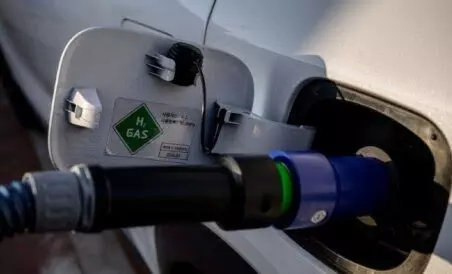
Seawater split to produce green hydrogen: Study
text_fieldsMelbourne: Without any pre-treatment, scientists have produced green hydrogen by splitting seawater.
According to the international study, the researchers electrolyzed natural seawater to make green hydrogen, separating it into oxygen and hydrogen with about 100% efficiency.
According to the study, they employed a non-precious and inexpensive catalyst in a commercial electrolyser.
Cobalt oxide with chromium oxide on its surface is a typical non-precious catalyst.
"We used seawater as a feedstock without the need for any pre-treatment processes like reverse osmosis desolation, purification, or alkalisation," said Yao Zheng, lead researcher from the University of Adelaide, Australia.
"The performance of a commercial electrolyser with our catalysts running in seawater is close to the performance of platinum/iridium catalysts running in a feedstock of highly purified deionised water," said Zheng.
The team published their research in the journal Nature Energy.
"Current electrolysers are operated with highly purified water-electrolyte. Increased demand for hydrogen to partially or totally replace energy generated by fossil fuels will significantly increase scarcity of increasingly limited freshwater resources," said Zheng.
Seawater is an almost infinite resource and is considered a natural feedstock electrolyte. This is more practical for regions with long coastlines and abundant sunlight, the study said.
However, it is not practical for regions where seawater is scarce, the study said.
Seawater electrolysis is still in early development compared with pure water electrolysis because of electrode side reactions, and corrosion arising from the complexities of using seawater.
"It is always necessary to treat impure water to a level of water purity for conventional electrolysers including desalination and deionisation, which increases the operation and maintenance cost of the processes," said Zheng.
"Our work provides a solution to directly utilise seawater without pre-treatment systems and alkali addition, which shows similar performance as that of existing metal-based mature pure water electrolyser," said Zheng.
The team will work on scaling up the system by using a larger electrolyser so that it can be used in commercial processes such as hydrogen generation for fuel cells and ammonia synthesis, the study said.
With PTI inputs






















